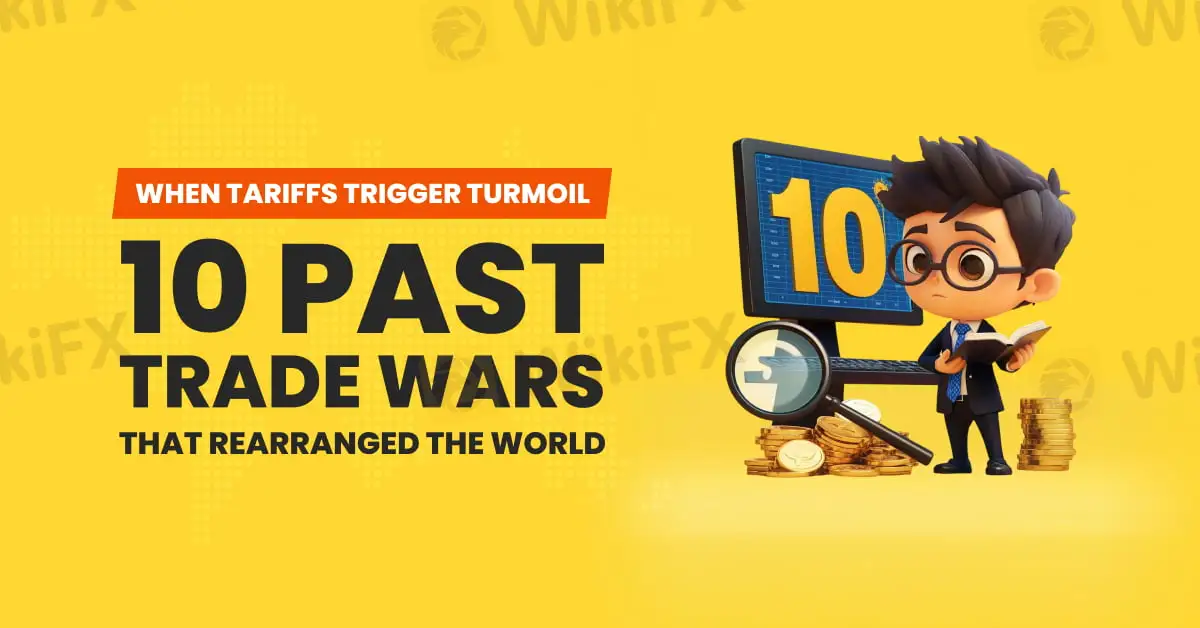Abstract:Far from being mere policy tools, tariffs and trade restrictions have repeatedly served as catalysts for economic upheaval, diplomatic rifts, and even armed conflict. Here are ten historically significant trade wars that altered the course of nations and the global economy.

Trade wars might seem like issues for economists and politicians, but they have often played a major role in shaping global events. From early tax revolts to recent tariff battles between world powers, these disputes have influenced economies, caused political tensions, and even led to armed conflict. Here are ten key trade wars that left a lasting mark on history.

One of the first trade-related uprisings in the United States began in 1791 when the government put a tax on whiskey. Farmers in Pennsylvania, who used whiskey as a way to make money from surplus grain, felt the tax was unfair. They refused to pay and organised a revolt. The government eventually sent troops to end the rebellion, showing that it had the power to enforce national tax and trade laws.

After the Napoleonic Wars, Britain introduced the Corn Laws in 1815. These tariffs made imported grain more expensive in order to protect British farmers. But the result was higher food prices, which hurt workers in towns and cities. Public pressure led to the repeal of the Corn Laws in 1846, marking the beginning of Britains move toward free trade.

In the mid-1800s, China tried to stop British traders from selling opium, a drug that was causing serious problems across the country. Britain responded by sending warships. Two wars followed: one from 1839 to 1842 and another from 1856 to 1860. China lost both and was forced to sign trade agreements that heavily favoured Britain. These wars weakened Chinas control over its economy and opened the country to foreign influence.

Although slavery was the main cause of the American Civil War, disagreements about tariffs also added to the divide. The North wanted high tariffs to protect its factories, while the South, which relied on exporting crops, wanted low tariffs. These economic differences added more tension to an already divided country.

During the Great Depression, the U.S. introduced the Smoot-Hawley Tariff Act in 1930 to protect American industries. It raised taxes on many imported goods. Other countries responded with their own tariffs, which caused global trade to shrink. Instead of helping the economy recover, it made the situation worse.

In the early 1960s, European countries placed tariffs on cheap American chicken. In 1963, the U.S. responded by taxing European goods such as brandy and potato starch and even German-made Volkswagen vans. While it seemed like a strange dispute, the effects lasted for years and influenced how the U.S. handled car imports.

By the 1980s, Japan had become a major exporter of cars and electronics. The U.S. accused Japan of unfair trade practices and put limits on Japanese imports. Japan agreed to reduce exports to avoid further conflict. This trade war helped shape modern rules around international trade and competition.

In the 1990s, the U.S. and the European Union clashed over banana imports. The EU gave trade benefits to banana producers in former European colonies, mainly in the Caribbean. The U.S., supporting American banana companies, challenged these rules at the World Trade Organization. The dispute lasted for nearly two decades and was finally settled in 2009.

The dispute over softwood lumber between Canada and the U.S. dates back to 1982 but became more serious in the early 2000s. The U.S. says Canada unfairly helps its lumber industry through government support, making Canadian wood cheaper. Tariffs, court cases, and trade talks have continued for years, with no long-term solution.

In 2018, President Donald Trump started a trade war with China by putting tariffs on hundreds of billions of dollars' worth of goods. China quickly responded with its own tariffs. The conflict affected global supply chains and created uncertainty in many industries. Even after some agreements were reached, the trade relationship between the two countries remains tense and hits another climax in 2025.
These ten trade wars show that tariffs and trade rules are not just about economics, but they often reflect deeper political and social divides. Sometimes they protect local industries, but just as often, they cause long-term damage and spark wider conflicts. Understanding the history of trade wars helps us see how closely linked economic policy is to global stability.




















